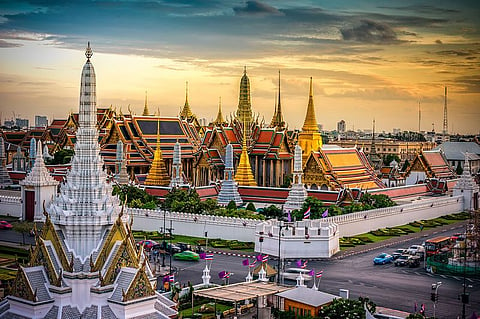New alcohol law: How tourists in Thailand can now be fined 10,000 baht
The law bans using celebs or influencers to promote alcohol, allowing only factual content

Thailand’s newly enforced alcohol control law, effective November 8, has sparked criticism from the tourism and hospitality sector. The law imposes fines of up to 10,000 baht (approximately Dh1,128 ) on individuals drinking outside permitted hours, raising fears that stricter rules could hurt nightlife and post-pandemic tourism recovery.
According to Bloomberg, under the updated Alcoholic Beverage Control Act (No. 2) B.E. 2568, consumers—not just vendors—may now face penalties.
Those “sitting and drinking” in restaurants outside legal hours (11:00–14:00 and 17:00–24:00) could be fined, while some reports suggest restrictions may extend from midnight to 11:00 am (local time). Previously, bans applied mainly to retailers.
Tourism operators voice concern
Entertainment and restaurant businesses in major tourist destinations have expressed worry that the law could hamper Thailand’s post-pandemic economic recovery, according to Nation Thailand.
Many point out that customers who purchase drinks before the restricted hours and continue drinking a few minutes past the deadline could still face fines.
“The law is confusing and counterproductive,” said one restaurant operator. “Even though exceptions exist for licensed venues such as hotels and international airports, penalising diners at ordinary restaurants directly discourages tourism.” Industry representatives fear that the new rule could dampen Thailand’s festive high season and slow the pace of tourism recovery.
Restaurants also fear that minor breaches—such as finishing a drink a few minutes past restricted hours—could trigger fines. For example, a beer served at 1:59 pm but consumed until 2:05 pm could violate Section 32. Popular tourist spots, including Khao San Road, have expressed concern that consumer-targeted restrictions could sharply reduce alcohol sales, with some warning of potential exploitation by officials.
Advertising restrictions added
The amended law also prohibits promotional use of celebrities, influencers, or public figures to market alcoholic beverages, allowing only factual content. Industry leaders warn this could further hurt revenue and dampen the festive high season.
Foreign tourists react
International visitors have criticised the law online as overly restrictive, with some suggesting it may affect travel plans. Confusing rules—such as ordering drinks before legal hours but consuming them after—may unsettle tourists.
Government signals potential reform
According to the Straits Times, Prime Minister Anutin Charnvirakul has directed the Ministry of Interior and Ministry of Public Health to review the law. Proposed amendments could lift zoning restrictions and extend alcohol service hours to 4:00 am (local time), potentially boosting tourism spending and VAT revenue. The government expects to finalise changes by January 2026.
Entertainment venues in Bangkok, Phuket, Chon Buri, Chiang Mai, and Koh Samui were already allowed to operate until 4:00am under a 2023 ministerial regulation, but broader deregulation is expected to simplify compliance for restaurants and licensed operators.
Impact on tourism and nightlife
Industry experts warn the stricter rules risk slowing Thailand’s post-pandemic recovery. Opponents argue that 24/7 alcohol sales would better support tourism and nightlife growth.
Sign up for the Daily Briefing
Get the latest news and updates straight to your inbox






